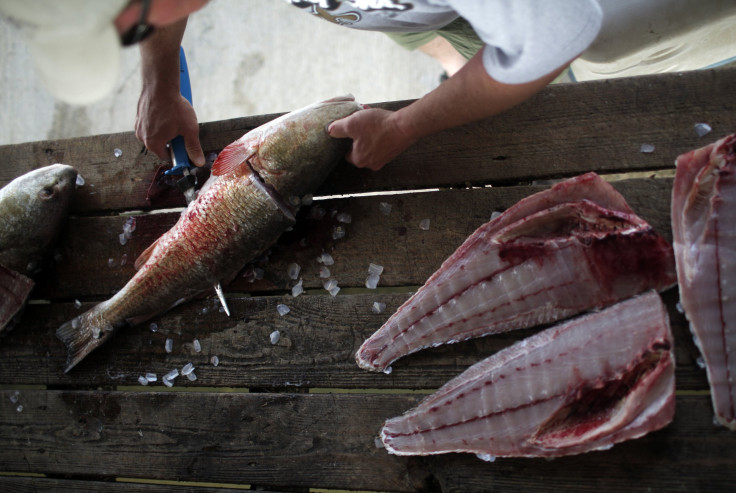BP Says Deepwater Horizon Spill Civil Penalty Should Be Lowered Along With Oil Prices

Benny Miller of the New Orleans-based Louisiana Seafood Exchange isn’t happy with BP’s recent decision to fight penalties for the 2010 Deepwater Horizon oil disaster that crippled the region’s economically vital seafood industry.
“They’re crazy if they think they can get away without paying just because oil prices are down,” said the general manager of the seafood wholesaler, which is involved in litigation against the oil giant.
Less than two weeks after a south Louisiana commercial fishing ground was reopened more than four years after one of the largest offshore oil spills in history, British oil giant is asking the federal government to lower its civil penalty, citing the recent steep drop in global oil prices.
The news comes as BP is trying to find as many ways possible to reduce its lingering oil spill liability. The company has taken a pretax charge of $43 billion to cover all spill costs, according to its latest regulatory filing. The money includes covering a federal civil penalty of up to $18 billion based on the amount of oil spilled, money that would go to the federal government.
In addition to fighting the federal penalty, BP is challenging a class-action settlement to local individuals and companies, saying the program is compensating for “claimants that suffered no injury from the spill,” a BP spokesperson said in an email to Bloomberg.
Earlier this month, the U.S. Supreme Court refused to review BP’s challenge to a $9.7 billion payment, which means the flow of injury claims can continue, for now.
In a filing Friday with the U.S. District Court in Louisiana, BP said imposing the maximum fine would have a “very significant negative economic impact” on the company’s exploration and production subsidiary, according to the Financial Times. BP says it should pay “at the lower end of the statutory range” as oil prices plummet.
The U.S. Clean Water Act allows the federal government to impose a maximum civil penalty of $4,300 per barrel of oil spilled. The government estimated that 4.2 million barrels of oil spilled in the accident that claimed 11 offshore workers’ lives and inflicted significant damage to the local ecosystem, including economically significant oyster beds and shrimp spawning areas. The overall environmental impact will be studied and disputed for years to come.
In September the court ruled the Deepwater Horizon oil spill was the product of BP’s gross negligence and willful misconduct. The oil giant had attempted to lay most of the blame to contractors Halliburton and Transocean, but Judge Carl J. Barbier said in his ruling that while all three companies are negligent, the blame lies largely with BP.
In a response to BP’s efforts to lower its penalty, the U.S. Justice Department said Friday that the size of the spill and its environmental and economic impact means BP should pay at or near the maximum penalty.
© Copyright IBTimes 2024. All rights reserved.






















